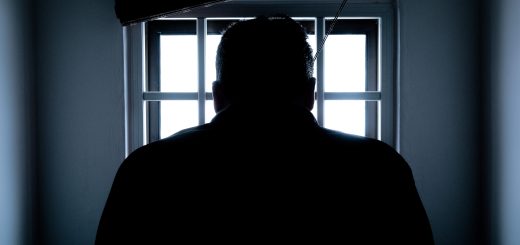Believing the Intoxicated Survivor: R v Kishayinew and the Nuanced Test for Sexual Assault

Content Warning: This article includes depictions of sexual violence that may evoke strong emotions.
In the last three decades, the law of sexual assault has evolved drastically, most recently with the added definitions of consent under s. 273.1 of the Criminal Code, RSC 1985 c C-46 [Criminal Code]. In November, the Supreme Court of Canada (“SCC”) affirmed the expansion of the jurisprudence of consent in its ruling of R v Kishayinew, 2020 SCC 34 [Kishayinew]. The accused, Mr. Kishayinew, was charged with sexual assault, contrary to s. 271 of the Criminal Code for having sexual intercourse with L.S. who was intoxicated at the time. The issue at bar was whether the trial judge had erred in finding L.S.’ account of the events—which differed from the account given by Mr. Kishayinew—as reliable when such a finding would be incompatible with the evidence that L.S. was intoxicated at the time.
The majority of the SCC sided with the trial judge and the dissent in the Saskatchewan Court of Appeal (“SKCA”) decision in determining that the trial judge properly conducted a reliability analysis. Both the majority decision and the sole dissent given by Justice Côté was given from the bench and expressed deference towards the lower court rulings. Though advocates of sexual assault survivors may find Kishayinew as knocking down yet another barrier for bringing sexual assault cases to court, the unique facts of the case may suggest that it may be too early to celebrate the decision.
Facts
On August 24, 2014, L.S. had a night out drinking with her friend R.D. At a bar, they met Mr. Kishayinew, who neither of them knew, and from that point on, the accounts of the evening’s events differ. L.S. recounted that Mr. Kishayinew invited her and R.D. to a house party, which they attended (R v Kishayinew, 2017 SKQB 177 [Kishayinew QB], para 14). Upon leaving the house party, L.S. described her level of intoxication as 7 or 8 as she had a few beers at the bar prior and a few shots at the party. At this point, L.S. blacked out and when she came to, R.D. had left and she was sitting on the ground at the parking lot of the bar, crying (Kishayinew QB, para 21).
Mr. Kishayinew told her that it wasn’t safe to stay there and took her back to his sister’s place, despite L.S.’s resistance (Kishayinew QB, para 23). Upon arriving at his sister’s house where he was residing, Mr. Kishayinew directed L.S. to his room, told her to lie down, and started groping and kissing her. L.S. recalls rebuffing him, telling him no and that she wanted to go, but that Mr. Kishayinew told her to take off her pants. She didn’t, but blacked out immediately after (Kishayinew QB, para 26).
When she regained awareness, L.S. noted she was lying on the mattress, with her pants and underwear on, but lower than she usually wears them (Kishayinew QB, para 27). L.S. asked Mr. Kishayinew to direct her to the bathroom and when she noticed he wasn’t looking, she ran out the back door crying and screaming (Kishayinew QB, para 28). One M.S. encountered L.S. crying and upset on the street and called the police soon after (Kishayinew QB, para 29). L.S. had a sexual assault kit done and in 2015, the samples revealed that the DNA collected from a vaginal swab matched that of Mr. Kishayinew, who was registered in the offender database.
Mr. Kishayinew denied L.S.’s accounts of the evening. Mr. Kishayinew recounted first encountering L.S., crying behind a bar and told her to come home with him where she would be safe (Kishayinew QB, para 43). Upon arriving at his place, Mr. Kishayinew said that L.S. lied on the bed, began kissing him and asked him to get a condom (Kishayinew QB, para 46). Having retrieved it, Mr. Kishayinew saw that L.S. had taken off her pants and underwear and saw this as an indication that she wanted to have sexual intercourse. After 15-20 minutes of intercourse, L.S. told Kishayinew to stop so he complied immediately. Mr. Kishayinew stated that he had waited for L.S. after she went to the bathroom, so when she ran out of the house, he was surprised and called after her (Kishayinew QB, para 47).
Trial Court Reasoning
The trial judge began by laying out the legal principles underlying the offence of sexual assault. The actus reus or act required to be charged under s. 271 is touching of a sexual nature without the consent of the complainant, where the consent is deemed to be subjective in the complainant’s mind (Kishayinew QB, para 62). The mental element required—the mens rea—is recklessness or wilful blindness of the accused towards the absence of consent (Kishayinew QB, para 64). For an accused to excuse himself of the requisite mens rea, he must prove that he took reasonable steps to ascertain whether the complainant had consented to the sexual act (Kishayinew QB, para 72).
At contention at the trial court was whether L.S. had consented to the sexual activity and had the capacity to consent, as defined under s. 273.1 of the Criminal Code. The court in R v Hutchinson, 2014 SCC 19 had established that to determine whether consent was present, the judge must first determine whether the evidence establishes no “voluntary agreement of the complainant to engage in sexual activity in question” and second, see if there are any circumstances to vitiate their apparent consent (Kishayinew QB, para 69). Here, the complainant had blacked-out at the time of the assault and subsequently, it was unclear whether consent was sought. That said, her inability to consent was sufficient to make out a finding of the requisite act of the charge, as long as the judge was convinced beyond a reasonable doubt that she was in fact intoxicated.
The trial judge noted that due to discrepancies in testimonies, he would have to assess the credibility and the reliability of the parties to establish whether consent was given in this case (Kishayinew QB, para 56). He rejected Mr. Kishayinew’s version of events completely due to the contradictions in his testimony while police questioning, cross-examination, and video evidence (Kishayinew QB, para 90).
In contrast, the trial judge found L.S.’ version of events more believable, stating that “she gave her evidence in a credible, forthright, honest and consistent manner” (Kishayinew QB, para 94). The trial judge stated that though consent could not be gauged at the time of the assault, the evidence leading up to and following the memory lapse suggested inferentially that L.S. did not consent to any sexual activity with Mr. Kishayinew (Kishayinew QB, para 97). Subsequently, Mr. Kishayinew had been reckless or wilfully blind to the L.S.’ level of intoxication and inability to consent to engage in sexual activity with him (Kishayinew QB, para 99). The trial judge found Mr. Kishayinew guilty of sexual assault, contrary to s. 271 of the Criminal Code.
Appellate Court Reasoning
Three issues were raised in the SKCA: whether the trial judge made inconsistent findings regarding consent; whether he made a finding of fact relating to reliability that was incompatible with evidence; and whether he made a finding of fact on the capacity to consent as a result of intoxication that was incompatible with evidence (R v Kishayinew, 2019 SKCA 127, [Kishayinew CA] para 4). Though the justices unanimously agreed that the trial judge had not erred in regards to the first question, the decision split regarding the latter two questions, which the majority of the court answered in the affirmative.
Primarily, the allowance of the appeal hinged on the fact that the trial judge did not discuss the impact of intoxication on L.S.’ memory and reliability (Kishayinew CA, para 26). Rather, he had made an implicit finding of fact that L.S. was a reliable witness (Kishayinew CA, para 27). Additionally, Justices Barrington-Foote and Jackson held that because L.S. had said in part of her cross-examination that she was sober following the assault, the trial judge had erred in excluding this evidence in finding that L.S. lacked the capacity to consent to the sexual act (Kishayinew CA, para 32). Thus, the majority allowed the appeal and ordered a new trial for Mr. Kishayinew.
In his dissent, Justice Tholl firmly held that the trial judge had not erred on any of the issues raised. Regarding reliability, he stated:
“In my view, trial judges do not have to explicitly address the issue of reliability, if their reasons are sufficient for an appellate court to determine they turned their mind to the issue of reliability and evaluated the relevant reliability factors” (Kishayinew II, para 64).
Justice Tholl found that the trial judge had done exactly that, adding that brief memory blackouts within the testimony could not render one’s other evidence unreliable (Kishayinew CA, para 75). Finally, Justice Tholl dismissed the third issue of inconsistency in finding the complainant’s capacity to consent with evidence that she was sober as the trial judge found that there was an absence of actual consent, not just a finding that the complainant was unable to consent, using inferential evidence (Kishayinew CA, para 87). In other words, the two-part test for consent was not seen as an ‘either-or’ mechanism, but one in which both outcomes can be present if the judge is persuaded beyond a reasonable doubt.
SCC Decision and Discussion
All but one justice agreed with the trial judge’s reasoning as well as the reasons of Justice Tholl in dissent and allowed the appeal. Read from the bench, Justice Moldaver stated that circumstantial evidence was sufficient to establish a finding of subjective consent and more evidence was not required to support a conviction for sexual assault. Justice Côté dissented and sided with the majority opinion of the SKCA. As a result, the conviction was restored, and a sentence appeal was reordered.
Kishayinew was the first case where the SCC affirmed that contextual evidence could be used to deem implicit lack of consent in sexual assault cases. Complainants who are assaulted while intoxicated or possess no memory of the incident fear that their consent will be taken at face-value in court despite their inebriated state. Such a ruling is a recognition that intoxication in and of itself cannot be a barrier to bringing perpetrators of sexual assault to trial for complainants and the context in which their consent was given must be analyzed carefully.
That said, given that the circumstantial evidence pointed to a clear lack of subjective consent by the complainant in Kishayinew, the court did not have difficulty deeming one party as more reliable than the other. This, however, may not always be the case as most sexual assault cases have no other witnesses to back the claim of one party over another. Moreover, it is common that explicit dissent is not expressed by the complainant. Thus, it is unclear whether future courts will consistently find the complainant’s testimony as more reliable as easily as they had in this case, especially if one or both of the parties were intoxicated and consent was not communicated surrounding the assault.
Conclusion
The SCC’s decision to side with the trial court reasoning in Kishayinew reveals a shift towards a more contextualized approach to sexual assault law, one which is long overdue. Sexual assault survivors and their advocates should be pleased to hear that intoxication induced memory lapse would not be an adverse factor in deeming their testimony reliable or in vitiating their consent. Though the Kishayinew decision has positive implications for sexual assault survivors overall, it raises the question of whether this nuanced approach to understanding consent will continue to act in their favour in future decisions.







Join the conversation